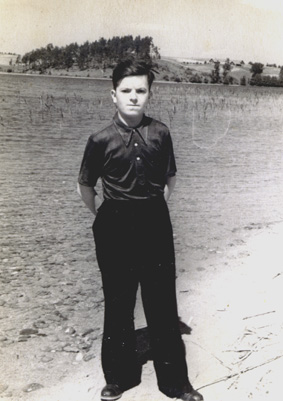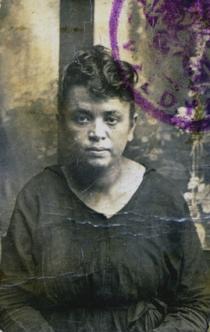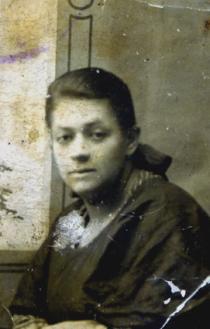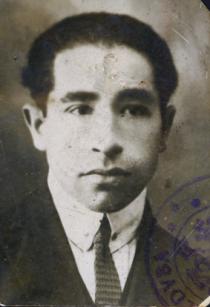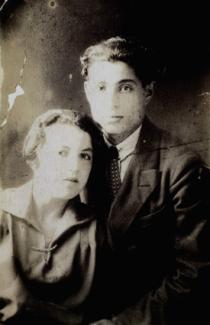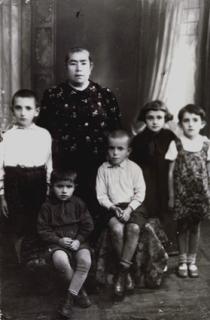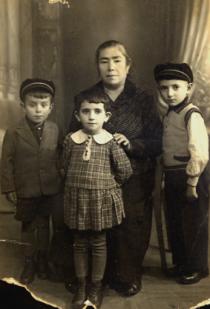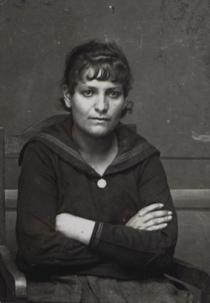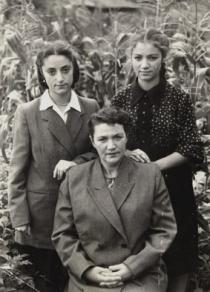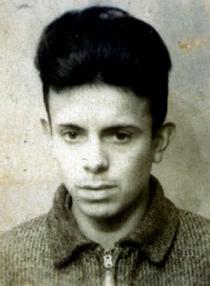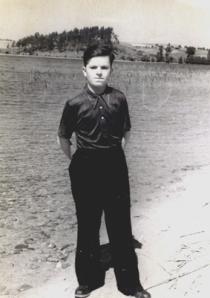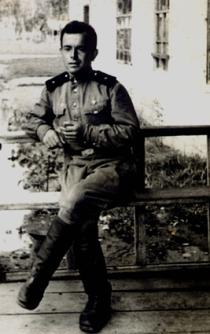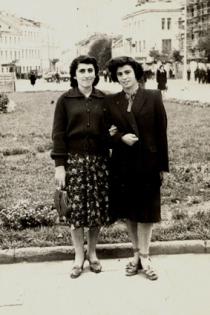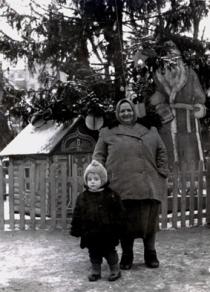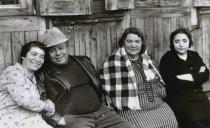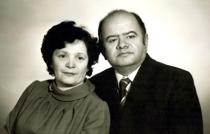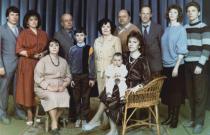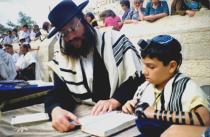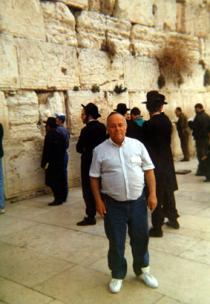This is my brother Gershko Birger. The picture was taken in town Tracai in 1952. Gershko and his family lived in Vitebsk at that time. He sent that picture to my mother and I.
Life was hard on us after the war. Father was the only bread-winner. She worked as a loader. He carried heavy rolls of paper and print samples to the publisher. In the period of 1946-47 bread and primary goods were sold by food cards. We had to stand in the line at night in order to get the products by cards- the way it was in military years. Once, our food card was stolen and we had been starving for entire week. I went to study. It was even harder for me than in pre-war period as I was an overage. In 1948 our family was stuck by a sorrow. Father's heart, being troubled by a hard physical labor, suddenly stopped. Father was buried in summer 1948 at the age of 48. It was a Jewish funeral with all Jewish rites being observed. He was carried to the cemetery on the boards and shivah was observed at home. When the mourning was over, it was decided by our family that I had to work as I was the oldest brother in the family and so-to-say the only bread-winner. I became apprentice of the printer and soon started working independently. I worked on platen, where rather high skills were required. I set printing mould, evened it and followed the quality of printing. I liked my job. Unlike my school I felt confident there. Mother also had to look for a job. She started working as a janitor in a bar by train station.
My brother Gershko worked at chemical plant after school. He married a Jewish lady Lyuba. She also worked with him at the plant. They left to her motherland, Byelorussian town Vitebsk. He worked there as a locksmith. Gershko's first son Efim died when he was a baby. His daughter Tatiana is currently living in the USA. Lyuba died in early 1990s. Gershko died in 1997. His death was strange. He was a guest at a peasant wedding and was intoxicated with moonshine, he had been treated with. His son Garik married a Byelorussian woman and took her last name. He is not willing to recognize us, his Jewish relatives. He even does not visit his father's grave. Once a year I go to Vitebsk to go to my brother's grave.
